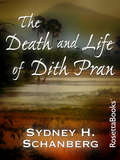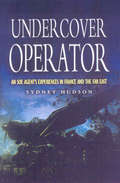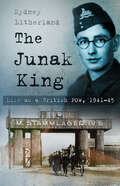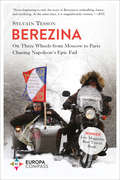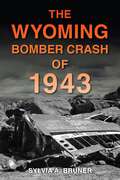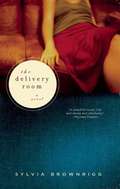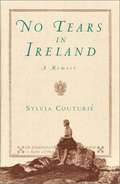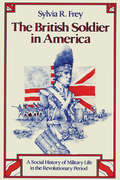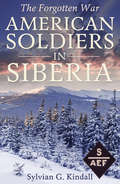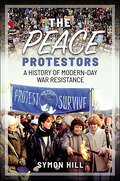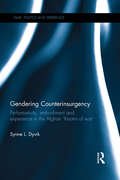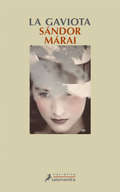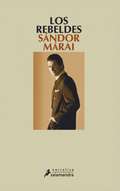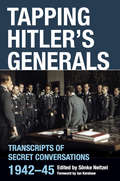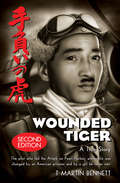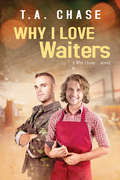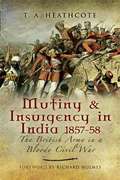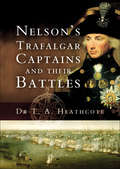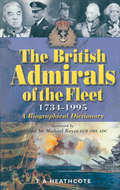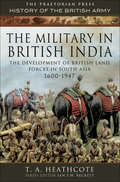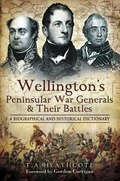- Table View
- List View
The Death and Life of Dith Pran
by Sydney H. SchanbergThe US journalist&’s account of his colleague&’s struggle to survive the Cambodian genocide—the basis for the Oscar–winning film The Killing Fields. On April 17, 1975, Khmer Rouge soldiers seized Phnom Penh—the capital of Cambodia—and began a brutal genocide that left millions dead. Dith Pran, a Cambodian working as an assistant to American reporter Sydney H. Schanberg, was a witness to these events. While his employer managed to escape across the border, Dith Pran fled into the Cambodian countryside—and into the heart of the massacre. The basis for the acclaimed movie The Killing Fields, this is the compelling account of the days before the fall of Phnom Penh. It&’s the story of one man&’s struggle for survival in a country that had become a death camp for millions of its citizens—and another man&’s failed efforts to keep his friend and colleague safe. Written within a year of the atrocities committed by the Khmer Rouge, it is a work of both historical and literary significance. Sydney H. Schanberg contributed a moving new foreword to this first eBook edition.
Undercover Operator: An SOE Agent's Experiences in France and the Far East
by Sydney HudsonMemoirs of SOE agents have always been rare - so many were either killed in action or executed - and today they are almost unheard of. But Sydney Hudson's story, which he has waited nearly sixty years to tell, is just about as dramatic and thrilling as any to have ever appeared. After volunteering for guerilla operations should the Germans occupy Britain, he transferred to SOE. He spent most of the Second World War in France, remarkably surviving 15 months captivity and interrogation before making a daring and thrilling escape through the Pyrenees into Spain. Shortly after he was back in France, again by parachute, to organize resistance operations until the arrival of the US 3rd Army. More secret missions followed behind enemy lines with a female agent. Thereafter he volunteered for further SOE work in the Far East where he served in India and Thailand. He was twice decorated with the Distinguished Service Order for his efforts and also awarded the Croix de Guerre and it is easy for the reader of this book to see why.Undercover Operator is a fascinating mix of true drama, rich excitement and refreshing good-humor. It is no exaggeration to say that it makes a significant contribution to the history of SOE.
The Junak King: Life as a British POW, 1941-45
by Sydney LitherlandSydney Litherland, at the age of 20, was called up in February 1940. After having been evacuated from Greece, he was among the 30,000 British and Commonwealth soldiers taken prisoner by the Germans at the fall of Crete in June 1941. This book documents in fascinating and historically important detail their daily life as POWs in Germany and encapsulates the experiences of tens of thousands of ordinary POWs. The German airborne invasion of Crete and the surrender by the British is still the subject of controversy. Sydney gives here his own first-hand account of the event. This is not an account of heroic escapes and derring-do by dashing officers, but of the day-to-day endurance of the other ranks, mostly very young men, separated from their officers and expected to do hard manual labour in working camps. What is revealed is a different kind of courage: a quiet resilience and dogged determination not just to endure, but to triumph. Supporting each other, they never lose hope of eventual victory or let an opportunity slip to make life more difficult for their captors. This is an enthralling record of their triumphs and tragedies over four long years.
In a Land Far from Home: a JM Journey
by Syed Mujtaba AliWITH A NEW INTRODUCTION BY TARAN KHAN, author of Shadow CityTRANSLATED FROM BENGALI BY NAZES AFROZAn intrepid traveller and true cosmopolitan, legendary Bengali writer Syed Mujtaba Ali spent a year and a half teaching in Kabul from 1927 to 1929. Curious to explore Afghan society, Mujtaba Ali had access to a cross-section of Kabul's population, and in In a Land Far from Home he chronicles his experiences with a keen eye and a wicked sense of humour.Mujtaba Ali's travels coincided with a critical point in Afghanistan's history: when the reformist King Amanullah tried to steer his country towards modernity by encouraging education for girls and giving them the choice of removing the burqa. Branded a 'kafir', Amanullah was overthrown by the bandit leader Bacha-e-Saqao. With striking parallels to twenty-first century events in the region, In a Land Far From Home is the only first-hand account of this tumultuous period by a non-Afghan.Providing a unique perspective, Mujtaba Ali's fascinating account is brought to life by contact with a colourful cast of characters at all levels of society -- from the garrulous Pathan Dost Muhammed and the gentle Russian giant Bolshov, to his servant, Abdur Rahman and his partner in tennis, the Crown Prince Enayatullah.
Berezina: On Three Wheels from Moscow to Paris Chasing Napoleon's Epic Fail
by Sylvain Tesson“Hilarious, introspective, contemplative, professorial . . . the tale of a historical motorcycle tour quite unlike most any you will ever read.” —Ultimate MotorcyclingLire Magazine Best Travel BookTake four friends, put them on two Ural motorcycles (complete with sidecars), send them off on a 2,500-mile odyssey retracing history’s most famous retreat, add what some might consider an excessive amount of Vodka, and you’ve got Sylvain Tesson’s Berezina, a riotous and erudite book that combines travel, history, comradery, and adventure.The retreat of Napoleon’s Grande Armée from Russia culminated, after a humiliating loss, with the crossing of the River Berezina, a word that henceforth became synonymous with unmitigated disaster for the French and national pride for the Russians. Two hundred years after this battle, Sylvain Tesson and his friends retrace Napoleon’s retreat, along the way reflecting on the lessons of history, the meaning of defeat, and the realities of contemporary Europe. A great read for history buffs and for anyone who has ever dreamed of an adventure that is out of the ordinary.“Wonderfully mad.” —The Times“The narration is wry and marked by a cheerful fatalism. Mr. Tesson is a witty and knowledgeable road companion.” —The Wall Street Journal“From beginning to end, the story of Berezina is enthralling, funny, and terrifying. At the same time, it is magnificently written.” —RTL“Berezina succeeds brilliantly as a sly commentary on—and a challenge to conventional thinking about—today’s contention between Russia and the EU, and the rutted habits of the popular Western mind.” —On the Seawall
The Wyoming Bomber Crash of 1943 (Disaster)
by Sylvia A. BrunerBomber Mountain's Namesake Tragedy June 1943 saw forty-one heavy bombers lost within the continental United States, including a B-17 that went missing over Wyoming late during the night of June 28. That aircraft had ten young men on board destined for World War II. They had been ordered overseas to participate in the intense and constant bombing raids being conducted in Europe, but they never made it out of America. Two years later, area cowboys discovered the wreckage strewn across an otherwise picturesque landscape. U.S. Air Corps Captain Kenneth G. Hamm noted in his personal diary, “The plane was so completely demolished that we were almost on top of it before we saw it.” Author Sylvia A. Bruner shares the stories of the men who lost their lives deep in the Bighorn Mountains and recounts the events of the crash, search and U.S. Air Corps accident investigation.
The Delivery Room
by Sylvia BrownriggIt is 1998. In the safe haven of her London office--a room her husband jokingly calls "The Delivery Room"--therapist Mira Braverman listens to the stories of her troubled patients, including an aristocratic woman going through an intense infertility drama, an American journalist who is eager to have a baby, and an irritable divorcee who likes to taunt Mira about her Serbian nationality. As the novel unfolds, Mira discovers she is not as distant from her patients' pain as she might once have been: her husband Peter struggles with illness, NATO's threats against her country grow more serious, and submerged truths from her own past seem likely to erupt. Compelling, complex, and always deeply human, The Delivery Room is an engaging examination of the incomplete understandings that course between therapist and patient, and a set of variations on the theme of motherhood--as well as a timely meditation on the meanings of wars fought from a distance, when ordinary citizens have to measure their personal griefs against the outrages experienced by those under attack.
No Tears In Ireland: A Memoir
by Sylvia CouturiéOn a cool, end-of-July morning in 1939, eleven year-old Sylvia Couturie and her eight-year-old sister, Marguerite, escorted by their Irish nanny, "Wally," left their family's elegant French chateau for a fantastically ill-timed vacation. Expecting their parents to join them in a month, they embarked in high spirits on this rare adventure outside their privileged but tightly confined orbit of horses and hunts, servants and boarding schools. They sensed the distant rumblings of trouble on the edges of their world, but it would have been inconceivable that their long-awaited holiday would become a prolonged imprisonment, that their difficult governess would become their tyrannical jailer. It would defy belief to think that these daughters of privilege would soon be forced to fight for survival in a strange land as the world descended into war, with only the indomitable spirit of a little girl to carry them through. Cut off from their family as France falls to the Germans, the penniless threesome is reduced to living in a miserable cottage without indoor plumbing on a remote strip of the Irish coast. As the months turn into years, Sylvia becomes aware that Wally is more concerned with preserving her status as their guardian than with securing their welfare and is slipping into dementia. Denied any meaningful education and cut off by Wally from all but the most fleeting human contact, the girls endure, saved only by Sylvia's extraordinary resourcefulness and the occasional kindness of strangers. Kept from home by Hitler's invaders, they are shocked and wounded by the pro-German sentiments of the anti-British locals. As they strain to make sense of their new and unrecognizable reality and are forced to deal with complex issues of bigotry and adult lunacy, the simplified yet profoundly astute worldview of the child is brilliantly conveyed. As German bombers fleeing British fighters during the battle of Britain terrorize the cowering threesome by dropping unused bombs in the ocean near their cottage, Sylvia finds strength in Churchill's voice on the BBC and promises him not to cry until victory is won, her touchingly unique contribution to the war effort. The painstaking wait for word from home, the daily trials of survival, and the crushing loneliness of childhood are evoked with devastating simplicity. Reconstructed from Couturie's surviving childhood diary, this unforgettable narrative of the resilience of children chronicles her desperate fight for something approaching normalcy. In the process, she delivers an indelible portrait of an obscure corner of the earth, remote from the historic events of the day and yet the starkly beautiful backdrop for the often overlooked story of powerless children on the outer edges of a world gone mad. This is the heartbreaking memoir of a childhood interrupted, of a way of life lost and a new one found, of exile and homecoming in a world restored to peace but forever changed. Sylvia Couturie grew up in France and Ireland. She has lived in New York, where two of her three sons were born, and in Vietnam, where she was "the voice of France in the Far East" on Radio Saigon, She lives in Paris and at Le Mesnil, her country home.
The British Soldier in America: A Social History of Military Life in the Revolutionary Period
by Sylvia R. FreyIn her investigation of the social history of the common British soldier in the era of the American Revolution, Sylvia Frey has extensively surveyed recruiting records, contemporary training manuals, statutes, and memoirs in an attempt to provide insight into the soldier's "life and mind." In the process she has discovered more about the common soldier than anyone thought possible: his social origins and occupational background, his size, age, and general physical condition, his personal economics and daily existence. Her findings dispel the traditional assumption that the army was made up largely of criminals and social misfits. Special attention is given to soldiering as an occupation. Focusing on two of the major campaigns of the war—the Northern Campaign which culminated at Saratoga and the Southern Campaign which ended at Yorktown—Frey describes the human face of war, with particular emphasis on the physical and psychic strains of campaigning in the eighteenth century. Perhaps the most important part of the work is the analysis of the moral and material factors which induced men to accept the high risks of soldiering. Frey rejects the traditional assumption that soldiers were motivated to fight exclusively by fear and force and argues instead that the primary motivation to battle was generated by regimental esprit, which in the eighteenth century substituted for patriotism. After analyzing the sources of esprit, she concludes that it was the sustaining force for morale in a long and discouraging war. This book is a contribution to our understanding of the eighteenth century and should appeal not only to military historians but also to social and economic historians and to those interested in the history of medicine.
American Soldiers in Siberia
by Sylvian G. KindallAmerican Soldiers in Siberia by U.S. Army officer Sylvian G. Kindall (first published in 1945), recounts his experiences as a member of the American Expeditionary Force Siberia from 1918 to 1920. AEF Siberia was involved in the Russian Civil War in and around Vladivostok at the end of World War I following the October Revolution. The futility and unpreparedness of the mission is apparent throughout the book, as is the author’s intense disdain for the Japanese troops, who were witnessed in repeated acts of violence against an unarmed citizenry. President Woodrow Wilson’s claimed objectives for sending troops to Siberia were both diplomatic and military: (1) rescue the 40,000 men of the Czechoslovak Legions, who were being harassed by Bolshevik forces as they attempted to make their way along the Trans-Siberian Railroad to Vladivostok; (2) to protect the large quantities of military supplies and railroad rolling stock that the United States had sent to the Russian Far East in support of the prior Russian government’s war efforts on the Eastern Front; (3) the need to “steady any efforts at self-government or self defense in which the Russians themselves may be willing to accept assistance.” At the time, Bolshevik forces controlled only small pockets in Siberia and Wilson wanted to ensure that neither Cossack marauders nor the Japanese military would take advantage of the unstable political environment along the strategically important railroad line located in this resource-rich region. For similar reasons, about 5,000 American soldiers were also sent to Arkhangelsk (Archangel), Russia by President Wilson as part of the separate Polar Bear Expedition.
The Peace Protestors: A History of Modern-Day War Resistance
by Symon HillFrom Afghanistan to the Falklands, from Northern Ireland to Iraq, British troops are nearly always in action somewhere in the world. But whenever there is war, there will be people who resist it. Sometimes, they can draw on public sympathy. At other times, they stand alone against the crowd. Peace movements large and small have been a constant part of UK history, not least in the last 40 years. This book tells their stories. Drawing on interviews, fresh research and newly released government documents, the book sheds light on some of the most surprising and overlooked events of recent decades. Peace activists in the 1980s did not know that Margaret Thatcher's government feared that US troops on UK bases would fire on unarmed demonstrators. When the ceasefire came about in Northern Ireland, few noticed the peace work that Quakers had been doing behind the scenes for years. While the jingoistic atmosphere of the Falklands War is much remembered, there is less talk about the protests against it that saw more than 100 arrests at navy recruitment centres and public demonstrations. Four women who successfully disarmed a warplane in the 1990s were just a few of those to be acquitted after actions that could have resulted in years in prison. Apparent public support for the campaign against the Iraq war masked deep and bitter divisions amongst anti-war activists. Dissent and disobedience within the armed forces continues far from the public gaze. As recently as 2011, Michael Lyons was refused discharge from the Royal Navy despite developing a conscientious objection to war. He spent seven months in a military prison. This is a book that brings to life the realities of resistance by people whose refusal to conform has much to say about how we see the UK and British history today.
Soldier of Her Heart
by Syndi PowellAn solider returns from war with PTSD and finds love and healing with a woman who is his opposite in this wholesome, feel-good romance.This ex-army man . . . is just the hero she needs.Lawrence Beckett returned from Iraq a hero. Inside, he’s still fighting to find peace. A renovation project brings him into contact with art specialist Andie Lowman. She has the contacts to help repair a stained glass window—along with a warmth he didn’t know he needed. Fixing the piece becomes a joint effort . . . but can they learn how to restore not just a beautiful treasure, but also each other?
Gendering Counterinsurgency: Performativity, Embodiment and Experience in the Afghan ‘Theatre of War’ (War, Politics and Experience)
by Synne L. DyvikThis book analyses the various ways counterinsurgency in Afghanistan is gendered. The book examines the US led war in Afghanistan from 2001 onwards, including the invasion, the population-centric counterinsurgency operations and the efforts to train a new Afghan military charged with securing the country when the US and NATO withdrew their combat forces in 2014. Through an analysis of key counterinsurgency texts and military memoirs, the book explores how gender and counterinsurgency are co-constitutive in numerous ways. It discusses the multiple military masculinities that counterinsurgency relies on, the discourse of ‘cultural sensitivity’, and the deployment of Female Engagement Teams (FETs). Gendering Counterinsurgency demonstrates how population-centric counterinsurgency doctrine and practice can be captured within a gendered dynamic of ‘killing and caring’ – reliant on physical violence, albeit mediated through ‘armed social work’. This simultaneously contradictory and complementary dynamic cannot be understood without recognising how the legitimation and the practice of this war relied on multiple gendered embodied performances of masculinities and femininities. Developing the concept of ‘embodied performativity’ this book shows how the clues to understanding counterinsurgency, as well as gendering war more broadly are found in war’s everyday gendered manifestations. This book will be of much interest to students of counterinsurgency warfare, gender politics, governmentality, biopolitics, critical war studies, and critical security studies in general.
La gaviota
by Sándor MáraiPublicada por primera vez en 1943 -en un período de la segunda guerra mundial de extraordinaria tensión e incertidumbre en Hungría, cuyo régimen se había alineado con la Alemania nazi-, La gaviota es una muestra más de la incomparable prosa, incisiva y sin concesiones, de Sándor Márai, uno de los grandes escritores del siglo XX. Alto funcionario ministerial, culto, solitario y seguro de sí mismo, el hombre acaba de dictar una orden de enorme trascendencia, una decisión que en cuestión de horas afectará inexorablemente a millones de personas. Sin embargo, su aparentemente inmutable serenidad se resquebraja con la inesperada aparición de Aino Laine, una hermosa joven finlandesa de nombre poético y que tiene un parecido asombroso con la única mujer que el hombre amó, fallecida años atrás. Entonces, contra lo que aconsejan la prudencia profesional y el decoro, invita a la joven desconocida a acompañarlo esa misma noche a la ópera. Da comienzo así entre ambos un diálogo íntimo y profundo, un juego de seducción no exento de riesgos, donde la pasión, la nostalgia y la fuerza destructora del destino obran una perturbadora transformación en el sólido equilibrio burgués de un hombre sensato y honorable. Reseñas:«Sándor Márai tensa los hilos mágicos de la existencia humana.»SonntagsZeitung «El leitmotiv de la gaviota simboliza la voluntad de vivir y sobrevivir del ser humano, pese a las experiencias nihilistas de los años de guerra en que surgió la novela.»Markus Fischer, Spiegelungen-Zeitschrift f. dt. Kultur u. Geschichte Südosteuropas
Los rebeldes (Ciclo de los Garren #Volumen 1)
by Sándor MáraiSándor Márai publicó esta novela cuando tenía treinta años y acababa de regresar a Hungría. Aunque ya era conocido como escritor de talento, Los rebeldes causó un gran impacto y acabó de consagrar a su autor, que iniciaba entonces uno de sus períodos creativos más intensos y fecundos. Apenas unos meses antes del final de la Primera Guerra Mundial, cuatro jóvenes acaban sus estudios y se enfrentan al último verano de la adolescencia. En cuestión de semanas serán llamados a filas y enviados al frente, un frente del cual solo llegan noticias nefastas. Así, unidos por su aversión a lo que promete ofrecerles la madurez, Tibor, Ábel, Erno y Béla crean un universo particular y juegan a desafiar todas las reglas: beben y fuman en exceso, juegan a las cartas, se inventan extravagantes historias, cometen pequeños hurtos... Ante la ausencia de padres, tíos y hermanos mayores, realizan su propio aprendizajede la vida libres del control familiar, hasta que la aparición de un improvisado mentor, un avieso actor que está de paso en la ciudad, hará que sus juegos, y sus vidas, se precipiten por caminos insospechados que los llevarán hacia un dramático desenlace.
Tapping Hitler's Generals: Transcripts of Secret Conversations, 1942–45
by Sönke NeitzelThese transcripts of wiretapped conversations between Nazi officers reveal &“a fascinating—and chilling—insight into the German view of the war&” (Financial Times). Between 1939 and 1942, the British Directorate of Military Intelligence created a number of POW interrogation camps in and around London where they secretly recorded private conversations between senior German staff officers. In this extraordinary work, historian Sonke Neitzel examines these transcripts in depth and presents the private thoughts, opinions, and secrets of Nazi officers during the Second World War. These transcripts address important questions regarding the officers&’ attitudes towards the German leadership and Nazi policies: How did the German generals judge the overall war situation? From what date did they consider it lost? How did they react to the attempt on Hitler&’s life in July 1944? What knowledge did they have of the atrocities? By turns insightful and horrifying, this unprecedented research is a must for any serious scholar of the period. &“A goldmine of information about what the German High Command privately thought of the war, Adolf Hitler, the Nazis and each other.&” —Daily Mail
Wounded Tiger: A True Story
by T Martin BennettA historical novel based on the true story of the Japanese pilot who led the attack on Pearl Harbor in World War II—and the unlikely turn his life took. Fuming with a hatred for Americans and a strong sense of national and racial pride, Mitsuo Fuchida allows an intense passion and determination to lead him through the ranks of the Japanese Navy, and reaches a position he always knew he would achieve. Jake DeShazer joins the U.S. Army as a bombardier, burning with vengeance after the attack on Pearl Harbor. He spends years as a POW, battling insanity in solitary confinement, until he discovers the secret to change. The Covells, an American family of missionaries in Japan, flees the country to the Philippines. When they do, the oldest daughter, Peggy, becomes intertwined with someone unexpected, and unknowingly impacts the course of his life forever. Three seemingly unrelated wartime narratives come together in this well-researched, incredibly thorough fictionalized historical account of the attack on Pearl Harbor in 1941. This vivid tale lets you watch the story unfold before, during, and after the attack, and see the true impact of this infamous event in world history.Expanded second edition includes over 250 rare historical photographs, maps, and images
Why I Love Waiters (Why I Love...)
by T. A. Chase2nd EditionA Why I Love.... NovelAs a member of a covert military unit, John Davidson isn’t scared of much. Yet one look into Heath Kane’s dark blue eyes and he knows a different kind of fear for the first time. John can’t be gay, at least not out and proud in his unit, even with Don’t Ask, Don’t Tell repealed. He’s never been interested enough in any man to risk the fallout. Heath’s hometown wasn’t the best place for a gay kid to grow up, but his grandmother did her darnedest to make it good for him. Now he’s paying her back for all her love. She’s getting older and needs help, so he returns home to wait tables at the Corner Café while taking online courses to get his degree. Even though the Army base provides him with a lot of buff eye candy, he knows it’s best to keep his head down. Neither Heath nor John can deny their attraction, and John’s finally willing to act on their mutual interest. But holding on to each other will mean big changes in both their lives.First Edition published by Amber Quill Press/Amber Allure, 2011.
Mutiny & Insurgency in India, 1857–58: The British Army in a Bloody Civil War
by T. A. HeathcoteA vivid account of the bloody rebellion against colonial rule that raged through Northern India in the mid-nineteenth century. In 1857, a mutiny against the British East India Company broke out in the Bengal Army that would soon spread to Delhi and beyond. The cycle of bloody reprisals would continue for a little over two years, leaving countless bodies in its wake. The events of 1857 to 1859 were tragic and momentous. The challenge to British colonial rule was on an unprecedented scale. This book places these grim events into their historical, political, and economic contexts, and the authors&’ use of sources including personal accounts brings events of over a century and a half ago vividly to life.
Mutiny & Insurgency in India, 1857–58: The British Army in a Bloody Civil War
by T. A. HeathcoteA vivid account of the bloody rebellion against colonial rule that raged through Northern India in the mid-nineteenth century. In 1857, a mutiny against the British East India Company broke out in the Bengal Army that would soon spread to Delhi and beyond. The cycle of bloody reprisals would continue for a little over two years, leaving countless bodies in its wake. The events of 1857 to 1859 were tragic and momentous. The challenge to British colonial rule was on an unprecedented scale. This book places these grim events into their historical, political, and economic contexts, and the authors&’ use of sources including personal accounts brings events of over a century and a half ago vividly to life.
Nelson's Trafalgar Captains and Their Battles
by T. A. HeathcoteThis is a biographical dictionary of the two flag officers and captains of 27 battleships, four frigates and two minor combatant vessels that were present under Nelson's command at the historic battle of Trafalgar, 21 October 1805. Each officer's family background and naval career will be covered and his and his ship's role in the Battle analyzed. In addition there will be a general introduction.
The British Admirals of the Fleet, 1734–1995: A Biographical Dictionary
by T. A. HeathcoteA companion volume to the same author's "The British Field Marshals 1736–1997", this book outlines the lives of the 115 officers who held the rank of Admiral of the Fleet in the Royal Navy from 1734, when it took its modern form, to 1995, when the last one was appointed. Each entry gives details of the dates of the birth and death of its subjects, their careers ashore and afloat, their family backgrounds, and the ships, campaigns and combats in which they served. Each is placed clearly in its domestic or international political context. The actions recorded include major fleet battles under sail or steam, single-ship duels, encounters with pirates on the Spanish Main and up the rivers of Borneo, the suppression of the Slave Trade (for which the Navy receives little gratitude), landing parties to deal with local dictators and revolutionaries, and the services of naval brigades in China, Egypt and South Africa.
The Military in British India: The Development of British Land Forces in South Asia 1600–1947 (History of the British Army)
by T. A. HeathcoteT.A. Heathcotes study of the conflicts that established British rule in South Asia, and of the militarys position in the constitution of British India, is a classic work in the field. By placing these conflicts clearly in their local context, his account moves away from the Euro-centric approach of many writers on British imperial military history. It provides a greater understanding not only of the history of the British Indian Army but also of the Indian experience, which had such a formative an effect on the British Army itself. This new edition has been fully revised and given appropriate illustrations.
Wellington's Peninsular War Generals & Their Battles: A Biographical and Historical Dictionary
by T. A. HeathcoteWellington's achievements in the Peninsular War cannot be overestimated. At the outset in 1808 Napoleon and his Marshals appeared unstoppable. By the close Wellington and his Army had convincingly defeated the French and taken the war across the Pyrenees into France itself. He and his Generals had waged a hugely successful campaign both by conventional means and guerrilla warfare.This book contains the pithy biographies of some forty senior officers who served Wellington, in the majority of cases, so ably during this six year war. Many had experience of battle prior to the Peninsular and went on to greater heights thereafter. There is a section summarizing the major engagements that this 'band of brothers' took part in. The book is arranged in alphabetical order and each thoroughly researched entry places its subject's life in his historical and political context. The result is a highly entertaining, informative and authoritative book.
Marion Lane and the Deadly Rose
by T. A. WillbergThe second installment in the Marion Lane mysteries series. <p><p>The envelope was tied with three delicate silk ribbons: "One of the new recruits is not to be trusted..." <p><p>It's 1959 and a new killer haunts the streets of London, having baffled Scotland Yard. The newspapers call him The Florist because of the rose he brands on his victims. The police have turned yet again to the Inquirers at Miss Brickett's for assistance, and second year Marion Lane is assigned the case. But she's already dealing with a mystery of her own, having received an unsigned letter warning her that one of the three new recruits should not be trusted. She dismisses the letter at first, focusing on The Florist case, but her informer seems to be one step ahead, predicting what will happen before it does. <p><p>But when a fellow second-year Inquirer is murdered, Marion takes matters into her own hands and must come face-to-face with her informer-who predicted the murder-to find out everything they know. Until then, no one at Miss Brickett's is safe and everyone is a suspect. <p><p>With brilliant twists and endless suspense, all set within the dazzling walls and hidden passageways of Miss Brickett's, Marion Lane and the Deadly Rose is a deliciously fun new historical mystery you won't be able to put down.
